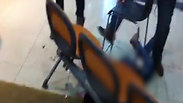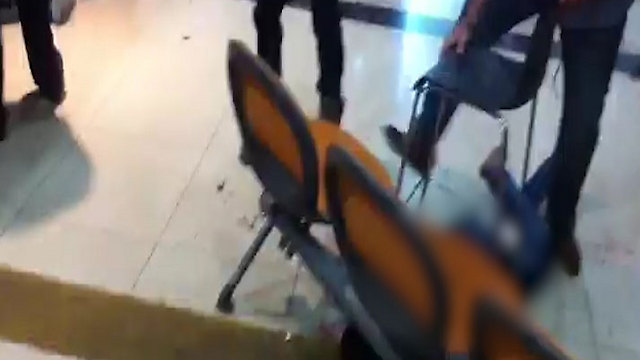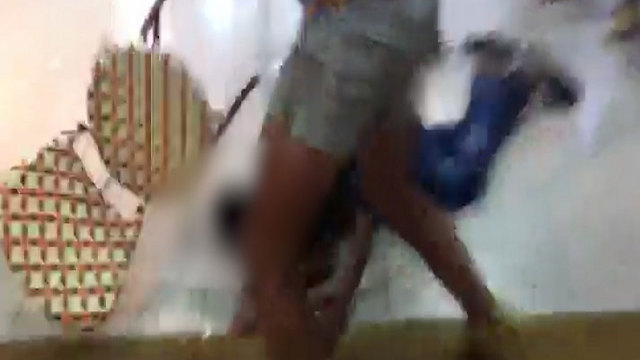
Judge in Be'er Sheva lynch case clarifies key footage may be considered
Day after reports that graphic CCTV footage capturing lynch of an Eritrean man mistaken for a terrorist in the city’s central bus station had been ruled out as evidence, presiding judge clarifies discussions on the footage had merely been delayed.
The presiding judge in the Be’er Sheva lynch case sought to clarify reports Thursday made the previous day that claimed he had decided not to consider footage of the murder captured on camera.
The Be’er Sheva District Court judge said that he had not rejected the footage as evidence, but rather had opted to delay discussions on its content until both the prosecution and defense teams had fully formulated their cases, which had yet to be completed due to legal technicalities.
On Wednesday it was reported that the judge presiding over the case involving the October 2015 violent killing of an innocent foreign man in the confused aftermath of a deadly terror attack had announced that the crucial CCTV footage capturing the brutal lynch will not be considered in the final verdict.
The incident took place at the height of what became known as Israel's 'wave of terror' when a terrorist shot IDF soldier Sergeant Omri Levy in the Be’er Sheva Central Bus Station and snatched his M-16 rifle which he used to open fire, murdering the soldier and wounding nine others, several of them members of Israel's security forces.
As a stampede of panicked crowds fled the scene, security forces mistook Haftom Zarhum, an Eritrean man who worked at the station, for the gunman, and shot him before he was set upon and brutally beaten to death by an enraged mob.
The country was rocked by the footage in which Zarhum is seen sprawled defenseless on the ground after being shot when a crowd of civilians hurl verbal insults at him while crashing down benches on him and kicking him.
Indictments were filed for causing intentional aggravated injury against the main culprits, identified as David Moyal, IDF soldier Jacob Shamba, Eviatar Damari, and Israel Prison Service Officer Ronen Cohen.
Only after two years did the police explain how they obtained the footage without a court injunction which, according to the defendants’ attorneys, was illegally seized and therefore not admissible as evidence in court.
The prosecution by contrast, highlighted that the defendants themselves identified themselves in the harrowing recordings which itself qualifies as evidence, rendering the technical requirements of how it was obtained unnecessary.












